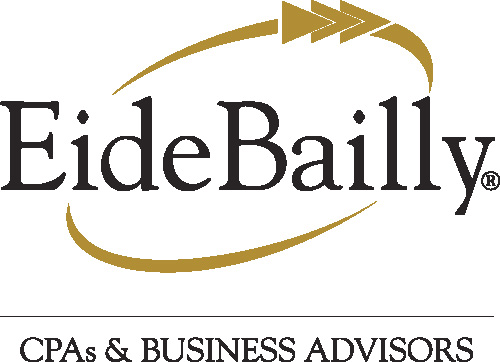
A version of this article previously appeared on EideBailly.com
Keeping Your Organization Strong and Secure
Operating a remote workforce comes with inherent risks and concerns businesses must account for on a regular basis. If you’ve switched to a work-from-home structure at your organization, you’ve probably encountered a few of them already. From preventing cybersecurity incidents and fraud to ensuring sales tax is properly calculated for NEXUS, if you intend to maintain even a partially remote workforce, you must stay informed and vigilant. Doing so will help you protect your business, even as restrictions relax and having remote workers becomes the new normal.
Cybersecurity for Remote Employees
It’s imperative to protect your data and infrastructure from attack as your employees work from home. Cybercriminals are using this turbulent time to prey on people who have their guard down. A recent study by OPENVPN found that one in three organizations have dealt with a security incident due to an unsecured remote worker. The same study found that 70 percent of IT professionals believe remote staff pose a greater risk than onsite employees. These remote technology environments are vulnerable in different ways than in-office environments. And, understanding that a cyberattack could be devasting, it’s important to practice prevention and put the right tools, systems and procedures in place to protect your organization.
Fraud Considerations with Remote Workers
Your organization is more at risk for fraud with employees working from home. Many employees are challenged in conducting tasks as they normally would and might neglect to take the necessary precautions to follow protocols. Some examples of fraud you might encounter, be they intentional or accidental, include:
- Reconciliations - not being performed due to lack of access to records
- Internal controls – not being adhered to due as employees rush to complete tasks
- Payroll timesheet errors - limited review of work performed and hasty approvals
Taking the time and effort to conduct complete and precise work will pay off in the long run. Develop a formal, written ethics policy establishing your stance on fraud, detailing what is expected from each employee, and documenting how fraudulent activity will be punished.
It’s also critical to proactively identify areas where fraud could arise in your organization and ensure you have proper segregation of duties to avoid risk.
Security Concerns with Zoom
In terms of concerns with remote work technology, users found many security issues with Zoom meetings in 2020 as hundreds of thousands of meetings went from in-person to virtual. The free version in particular was easy for cybercriminals to take advantage of. Disruptive tactics like Zoombombing, where an uninvited attendee enters a meeting, became such a significant issue for schools in early 2020 that even the FBI took notice and many schools banned the platform. To bolster their security, Zoom made several adjustments throughout the year, including:
- Two-factor authentication option
- End-to-end encryption option
- Fixed security issue that enabled Zoombombing
- Fixed security issue that enabled remote takeover of certain computers
Many of these adjustments are “optional,” so be sure to follow the recommendations for using the platform securely.
Complying with Nexus Tax Laws
With workers in various locations away from the physical office, making certain to file the necessary state and local taxes to be compliant is imperative. If your business sells to customers or operates in multiple jurisdictions, you may be required to file additional tax returns.
In regard to tax law, nexus occurs when a business has a connection to a state other than the one in which the business primarily resides. These connections can be created through an employee’s physical presence in a state performing services on behalf of a business, through the use of contractors, or via remote internet sales, including sales through marketplace facilitators. Depending on how you’re deriving revenue, your business could be subject to a variety of taxes such as income, franchise, gross receipts, and sales and use.
HR and Internal Communications with Remote Workers
HR should make sure remote employees have what they need to conduct their work. Reminding employees of benefits available to them to assist in addressing the new “norm” can help reduce fear and/or stress. Managers should have regular meetings and informal checkups with their team. Make sure you stay in touch with your employees and are transparent concerning your organization’s response to new regulations, changes to business operations and the status of the organization. Doing so may eliminate the element of surprise and allow employees to feel more secure. How you communicate and care for employees as the crisis continues – and even after it’s subsided – could have a lasting effect on the strength and stability of your organization.
Understanding the Business Impact of Remote Working
You need to keep your business top of mind, especially when it’s entirely remote. Following the guidance outlined in this article will help strengthen and protect your business, empowering you with a solid plan to move forward, whether today’s challenges persist or if you remain remote out of preference.
Dive Deeper: For more details on cybersecurity, fraud mitigation protocols, international tax considerations, and unique industry considerations, visit EideBailly.com




